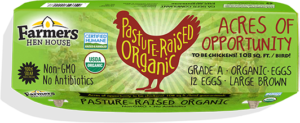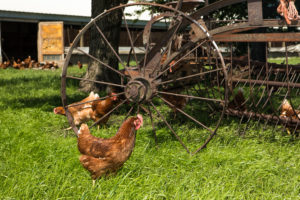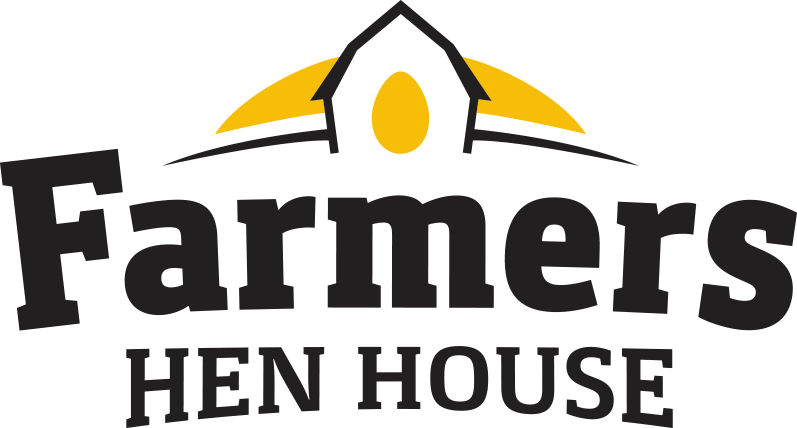With so many labels on specialty eggs, sometimes it can be easy to assume that just because a carton is labeled pasture raised eggs or free range eggs, that it automatically means that the eggs inside are organic.

However, that’s often not the case. How can you be sure that the pasture raised and free range eggs that you’re purchasing are organic? First, a quick history lesson on where the term “organic” came from and what it means.
The organic movement began in the early 20th century.
Initially called humus farming, it was considered a soil management strategy to help reverse the common agricultural problems of soil depletion, erosion, poor food quality, limited crop varieties, and the like. The purpose of the strategy was not only to preserve the soil, but to also regenerate it. In 1940, the term organic was used in Lord Northbourne’s book, Look To The Land, to describe humus farming. From there, the term organic grew in popularity and became the prominent way in which people referred to the sustainable and regenerative farming practices.
In 1973, the California Certified Organic Farmers (CCOF) created the first organic certification program to regulate the use of the term on various products. Over the next fifteen years, several other organic certification groups formed. Then, in 1990, the Federal Administration got involved with the passage of the Organic Foods Production Act (OFPA), which mandated the creation of a National Organic Program (NOP) and a National Organic Standards Board (NOSB). The OFPA and the formation of the NOP and NOSB ushered in USDA as a regulator of organics in order to help create better standardization and accountability for organic food production.

For us though, organics have always been an hallmark of our farming.
We were founded by a group of local farmers who created the Organic Growers Group (OGG) in 1995 to help farms become organically certified. Our founder, Eldon T. Miller, said the group was formed because most farmers do better with a pitchfork than a pencil in their hand, and needed assistance in the certification process. Even though our generational farms were doing organics before the term existed, we understood the importance of the certification process, and what it communicates to our customers.
Today, there are more certified organic farms in the 6 mile radius surrounding us than anywhere else in the world.
That’s why for us, we want to make sure that our pasture raised eggs are always organic, so that assumptions aren’t simply made by what the term pasture raised eggs means. For many companies, pasture raised eggs doesn’t necessarily mean organic eggs.
For Farmers Hen House, pasture raised eggs always means organic eggs.
Find our Organic Pasture Raised eggs at a store near you!

